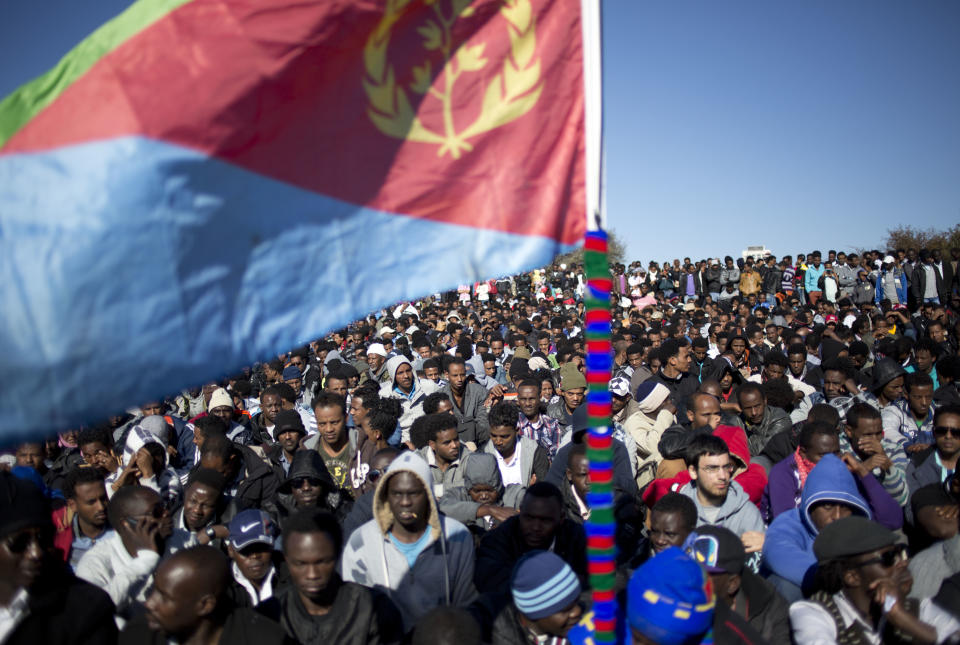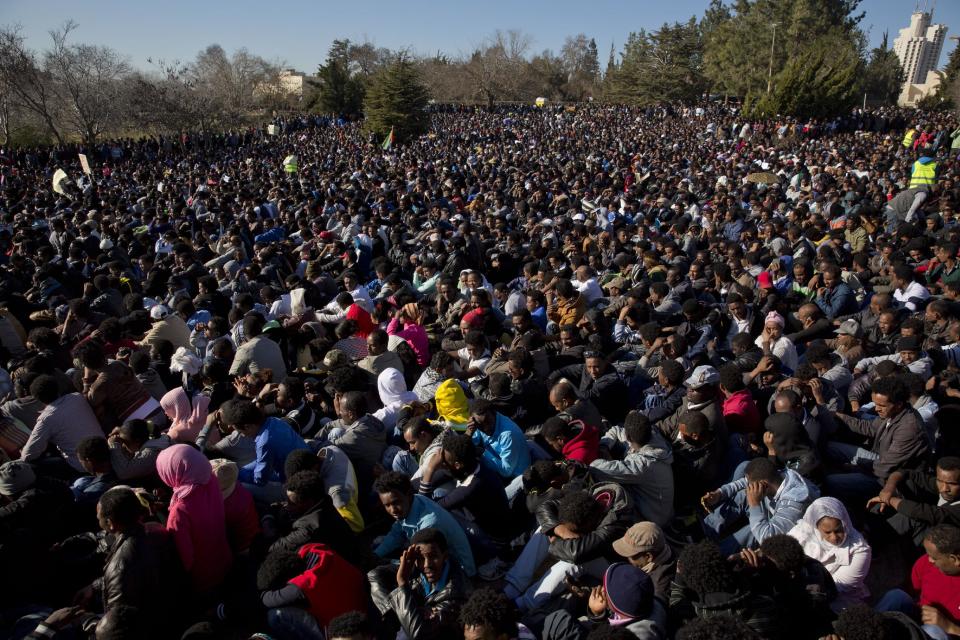African migrants protest outside Israel parliament
JERUSALEM (AP) — Thousands of African migrants demanding to be recognized as refugees protested Wednesday outside of Israel's parliament, part of a series of mass demonstrations over their status in Israel.
Police said more than 10,000 migrants rallied outside the Knesset, the Israeli parliament, with hundreds more continuing to stream into Jerusalem from across the country. The migrants staged two other mass protests this week in Tel Aviv, where they demanded the right to work and better treatment.
The migrants chanted "we are refugees, we need protection," as they raised their hands into the air.
"I want to ask the Israeli government to listen to our voices, to check our asylum requests, in a transparent way," Dawit Domuz, an Eritrean migrant and protest leader, told Israel Radio.
In a letter to Israeli Prime Minister Benjamin Netanyahu, which migrant leaders read aloud at their protest outside the Knesset, migrant representatives demanded that Israel release migrants from detention centers, process their asylum requests, and enter a dialogue with them.
Dovish lawmakers invited migrant protest leaders into the Knesset to discuss their plight.
"We need to see them as human beings. They haven't done anything illegal," Michal Rozin, a legislator who invited the migrants to the Knesset, told Israel Radio. "We are calling for a proper policy in regards to them as long as they remain here."
However, parliament speaker Yuli Edelstein barred their entry into the parliament building, fearing that their presence in parliament could provoke violence, said Edelstein spokesman Eran Sidis.
"These protesters are actually coming to demonstrate against Israeli laws and they are not acting according to Israeli laws. We cannot turn the parliament into a joke," hard-line lawmaker Miri Regev told Israel Radio.
Tens of thousands of migrants, most from Eritrea and Sudan, have come to Israel in recent years, with many working menial labor jobs at hotels or restaurants.
The migrants say they are refugees who have fled strife in their home countries. Israel sees many of them as economic migrants and has tried a number of tactics to stop the migrants' influx or keep their numbers down. It has built a fence along the border with Egypt, passed a law that allows for the migrants' detention and offered financial incentives to urge them to leave.
Many Israelis fear that the migrants' presence threatens the Jewish character of their country, and some blame them for rising crime rates in the low-income Tel Aviv neighborhoods where many have settled.
International law bars Israel from sending the migrants back to their countries because their lives would be in danger. With no other country volunteering to take in the migrants, critics say Israel has dragged its feet in reviewing individual migrants' claims for refugee status.




